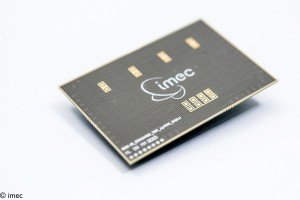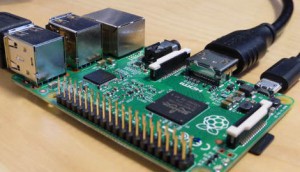A quarter of people polled in research has been commissioned by the EPSRC UK-RAS Network believe that ball-collecting robots at tennis games will exist within the next 10 years. This one one of the quirky findings in the market research which is being released ahead of UK Robotics Week (25 June – 1 July 2016). The use of robots in ...
Market Research
Comment: UK needs its own ‘Imec’
Imec held its Technology Forum in Brussels last month. Electronics Weekly’s components editor David Manners attended the event and his detailed reports on the technology ranging from deep sub-micron semiconductor technology to low power radio, IoT security and solar cells are published in this week’s issue of the magazine. Why is Imec important to the UK electronics industry? It is one of ...
Internet addiction and school burnout feed each other
Excessive internet use contributes to the development of school burnout. School burnout, in turn, may lead to excessive internet use or digital addiction, according to research by the Academy of Finland. The findings show that, via school burnout, adolescents’ excessive internet use can ultimately lead to depression. Exposure to digital addiction is most likely to happen if the adolescent loses ...
Brexit threatens engineering sector, says head of the IET
Exiting the EU would be a risk to the UK’s engineering sector, warns Naomi Climer, president of the Institution of Engineering and Technology (IET). The UK’s main organisation representing 100,000 engineers believes that the interests of UK engineering would be best served by remaining in the EU. “Given the considerable challenges already facing UK engineering and technology, it is difficult ...
Smart cities are a mystery to most of us
Only 18% of the UK public has heard of a ‘smart city’, according to research carried out by the Institution of Engineering and Technology (IET). The research also revealed low interest in the technologies typically associated with smart cities. For example, only 8% saw a value in being able to order driverless or electric transport from their smart phone. The ...
Why LED lighting is so important to the chip market
The incandescent light bulb will soon no longer be the go-to choice for lighting. It has been a long time coming, but the cost structures normally associated with LED equivalents have dropped dramatically over the past 5 years or so, writes Tony Armstrong. It should be noted that the general LED lighting market represents around 57% of the total LED market ...
Chip suppliers focus on high resolution audio
High resolution audio is the music industry’s next focus, according to a new industry report, which also said that ‘lossless’ streaming subscriptions are expected to account for almost 25% of all music subscriptions by 2020. But this does not mean the lower quality MP3 music file format is going to be replaced anytime soon. “Amazingly, the MP3 music format is ...
Perovskite solar: Good, with a dark side
Perovoskite photovoltaics promise >20% efficiency, low cost materials and flexible, stretchable, transparent variants, but are destroyed by damp and emits poison as they die. So says a report by Cambridge market research firm IDTechEx. Organolead halide perovskites are the promising technology because they absorb light efficiently. “Flexible stretchable versions have been produced by Johannes Kepler University in Austria. With 100% ...
Raspberry Pi programming language more popular than French
The Raspberry Pi programming language, called Python, has overtaken French as the most popular language taught in primary schools, according to a survey of school pupils and parents. Most significant was the importance even parents of the very young school children placed on learning programming. Six out of 10 parents want their primary school age children to learn the coding language ...
Survey highlights serious cuts in government-funded science R&D
Civil service employees in science research say decline in government-funded science affects whole economy, according to a survey by the Prospect union. The survey found that 81% of civil servants, three-quarters of those in other public bodies, and 45% of those in the private sector stated that “cuts in public funding have affected R&D across the economy over the last ...
 Electronics Weekly Electronics Design & Components Tech News
Electronics Weekly Electronics Design & Components Tech News






